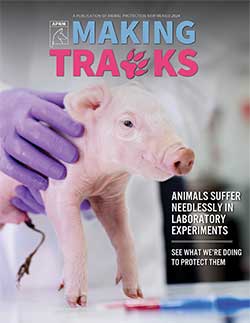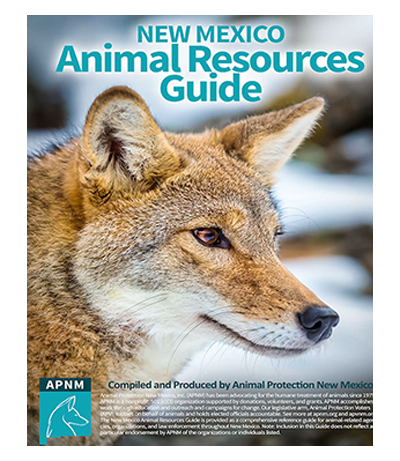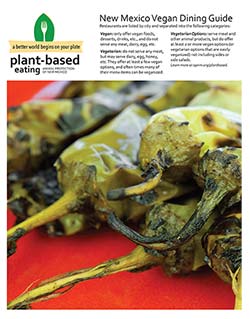Get Involved To Help Ensure A Safety Net
Horses are animals of remarkable complexity and nuance. Physically, they combine grace and raw power like no other creature. Mentally, the animals have an intelligence and thoughtfulness that is unmistakable. For these reasons and more, New Mexicans and all Americans have benefited from horses for centuries in countless arenas – as a signer of the New Mexicans Against Horse Slaughter petition recently wrote, “Horses have been essential to our survival throughout history, helping us with transportation, mail, farming and even in wars.”
One thing that horses don’t adapt well to, however, is being treated like commodities. Reckless overbreeding, irresponsible horsemanship, and other forms of abuse (much of it profit-driven) have produced the problem of needy and neglected horses in the United States.
As the saying goes, we cannot solve a problem with the same thinking that created it. Industrialized slaughter of horses – no matter where it is practiced – is not and never will be a solution to the overpopulation and suffering of horses. The process of horse slaughter is inherently cruel, subjecting these large but sensitive and fragile animals to physical and psychological trauma at every step.
Further, a recent piece by the New York Times suggests that the New Mexico company applying for horse slaughter had been improperly disposing of carcasses in potential violation of state environmental laws. If this slaughterhouse were to open, it will likely continue a legacy of disregard for animals and the environment by horse slaughter.
As New Mexicans who have long benefited from the varied abilities and qualities of our horses, we must ensure their (and our) quality of life with the same thoughtfulness. Help us promote real solutions for suffering horses.
The Equine Protection Fund
The number of American horses being shipped annually to slaughter in Mexico and Canada accounts for only 1% of the total horses in the U.S. This is not an insurmountable number of horses that can be given humane, dignified end-of-life treatment. Assistance efforts like NM’s Equine Protection Fund and programs in other states have laid the groundwork to provide compassionate care for all needy horses, donkeys, and mules – please spread the word about the Fund and encourage your friends and family to support the Fund’s efforts and join our Volunteer Network.
NM’s Horse Rescues
Support the frontlines work of the state’s horse rescue shelters that safeguard our state’s needy horses. Senate Bill 274, the Equine Shelter Rescue Fund sponsored by Senator George Muñoz (D-Gallup), has passed the entire legislature and is now waiting to be signed by Governor Martinez. Please contact the Governor and urge her to sign this bill into law, so New Mexico’s horse shelters can receive support from New Mexicans who want to voluntarily contribute their state tax refunds to these needy shelters.
Please make calls or emails TODAY in support of the Safeguard American Food Exports (SAFE) Act. The SAFE Act (S. 541/H.R. 1094) will implement a national ban on slaughter of horses and the transport of horses to slaughter. Contact your members of Congress (Senators Udall and Heinrich plus your Representative) to support the quick passage of this federal legislation.
Sen. Tom Udall
505-346-6791, 575-526-5475, 202-224-6621
email
Sen. Martin Heinrich
505-346-6601, 575-523-6561, 202-224-5521
email
Rep. Michelle Lujan Grisham
505-346-6781, 202-225-6316
email
Rep. Steve Pearce
1-855-473-2723, 202-225-2365
email
Rep. Ben Ray Lujàn
505-984-8950, 202-225-6190
email
Messages in your own words are best but feel free to use the following sample for ideas:
Dear Senator/Representative,
I’m writing to ask your support for the Safeguard American Food Exports (SAFE) Act. With our state being considered as the first to bring back horse slaughter in America, I strongly urge you to act on my behalf in saying that New Mexicans reject this practice completely.
Slaughter of horses is cruel no matter where it is conducted. It’s time to stop avoiding our responsibility to give our nation’s horses kindness, even in death, and to promote humane solutions over suffering. Also, I understand that there are serious questions about toxicity in slaughtered horsemeat and that foreign markets will soon halt American imports completely. Lastly, I’m disappointed to learn that despite the slaughterhouse in Roswell having been investigated and fined for environmental violations, the USDA is still seriously considering the company’s application for horse slaughter. For all these reasons, it is time for the United States to ban this horrible practice entirely.









